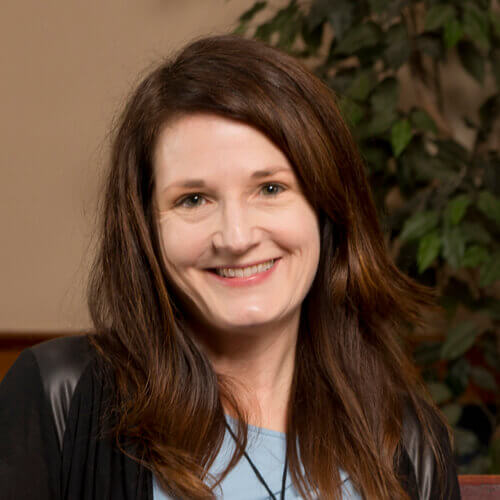Why study Developmental Psychology at MC?
The Major in Developmental Psychology is an excellent option for students who are interested in developmental science across the lifespan and in providing services to children, adolescents and adults. Students in this major build a strong foundation in the theory and practice of development, from conception through aging. Various community-based opportunities are embedded throughout the curriculum for students to learn how to provide direct service to individuals at various ages, as well as engage in developmental research and learn about child welfare initiatives and policy. Students also have opportunities for trainings that lead to valuable certifications and credentials.
Developmental Psychology majors often pursue graduate studies within clinical mental health, speech and language intervention, special education, social work, elder care, gerontology, criminal justice, counseling psychology, public health promotion, law, public policy, advocacy and other areas. The Developmental Psychology major offers options in three contemporary tracks of developmental science: Child Trauma and Resilience, Community Psychology, Relationship and Sexual Health, as well as an option for an individualized focus.
Child Trauma and Resilience
Dr. Ariane Schratter, Coordinator
The track in Child Trauma and Resilience represents highly relevant curriculum grappling with the causes and effects of developmental trauma recognized at local, state, national and international levels. The greater the exposure to things such as interpersonal violence, addiction and community violence in early childhood, the greater the risk for later-life problems such as chronic illnesses, poverty, depression and addictive behaviors. With community-wide support, children who have experienced childhood trauma develop resilience to succeed in school, maintain healthy lifestyles and positively contribute to civic life. Students in this track advance their professional preparation and learn how to positively impact populations through coursework, internships and engagement with a wide variety of community organizations.
Community Psychology
Dr. Kathie Shiba, Coordinator
The track in Community Psychology explores how individuals across the lifespan relate to their communities and, reciprocally, how communities affect individuals, integrating social, cultural, economic, political, environmental and international influences. Students in this track learn to promote positive change, health and empowerment at individual and systemic levels. The application of social justice principles, the decreasing of human suffering and the promoting of human values of equality and justice are applied to work in professions such as non-profit leadership, education, counseling, criminal justice and political science. The Community Psychology track includes a focus on cultural competency, mediation, communication and policy issues.
Relationship and Sexual Health
Dr. Karen Beale, Coordinator
The track in Relationship and Sexual Health gets to the heart of how to build healthy relationships and sexual health, as well as how to promote these in the community. Research shows us that when we have relationship and sexual health, we are better students, parents, employees and citizens, and we report a higher quality of life. In this track, students untangle the various constructs at work involved in relationship science and contemporary topics of sexuality using a Bio/Psycho/Social approach and use that information to first enhance their own lives, then focus on infusing key concepts into the community through internships and research projects. Professions where these skills are vital include: education, counseling, public health promotion, public policy, advocacy, non-profit leadership and social work.
Meet a Current Scot

Rosalinda Oceguera
Hometown: Brighton, Tennessee
Rosalinda came to Maryville College for the Sign Language Interpreting major but changed it to Developmental Psychology in her junior year. Confident in her decision, she explained, “My goal for the future is to have a lasting impact on those around me, specifically the children I hope to work with.”
Rosalinda notes that her professors are passionate about what they teach and constantly offer support and new perspectives. In addition to the faculty, she said she is grateful to the entire College for providing numerous opportunities. “If it was not for my financial aid support, I could be in a totally different position. I love my life here, and I could not imagine being anywhere else,” she said.
Meet a Recent Grad

Maddie Cunningham ’23
Currently: Pursuing a MSSW at the University of Tennessee-Knoxville
Maddie majored in Developmental Psychology (Child Trauma and Resilience track) and minored in ASL-Deaf Studies, graduating cum laude in May 2023. After her generalist year in her graduate program, Maddie plans on pursuing the childhood trauma track to graduate with a trauma certification. Within her graduate program, she also has an internship with Covenant Health for medical social work.
“Not only were my classes in my undergrad very helpful to tie into my current [graduate school] classes, but through comprehensive exams and senior thesis, I feel that I have a stronger knowledge of developmental psychology than many peers in my program,” she said.





